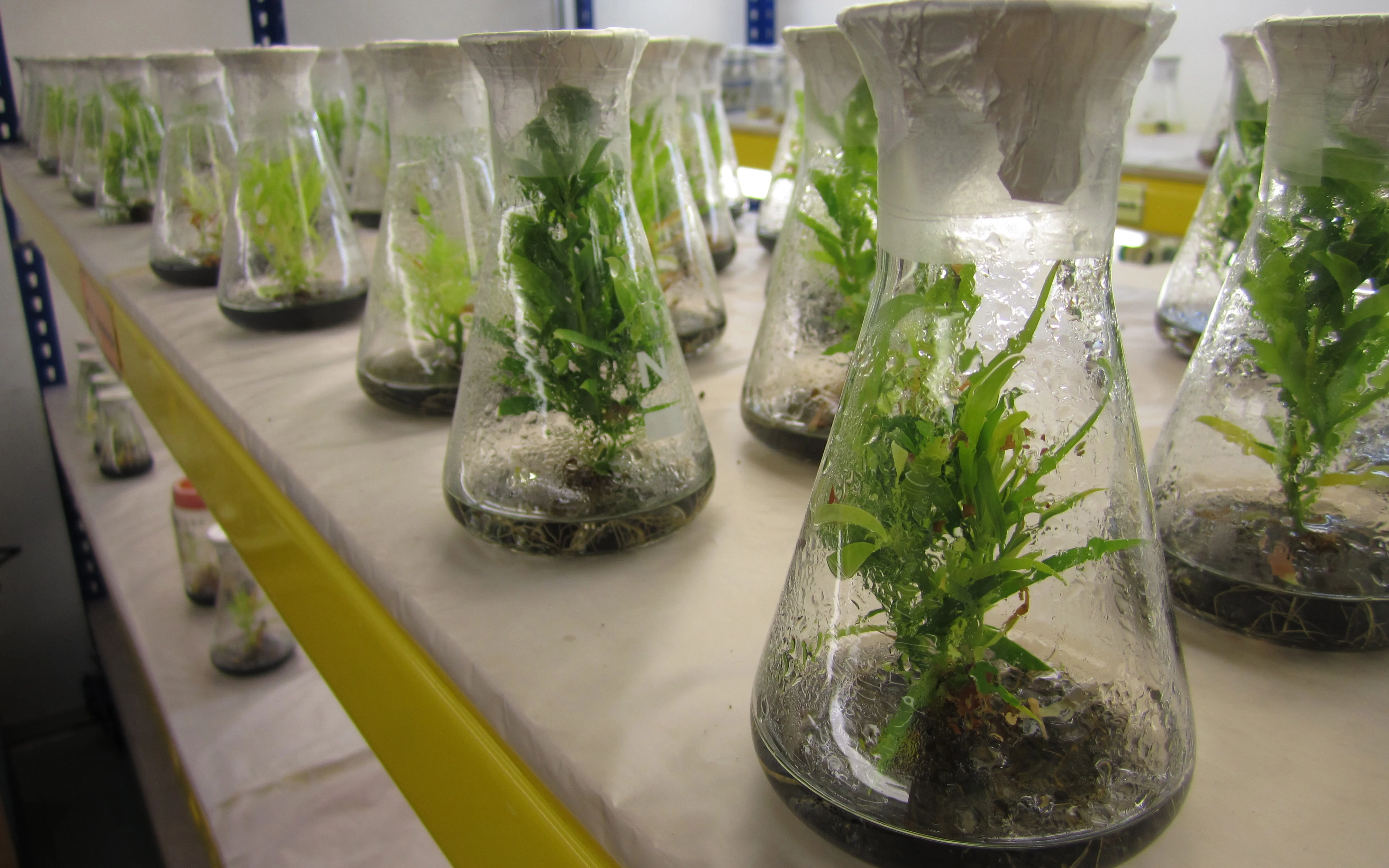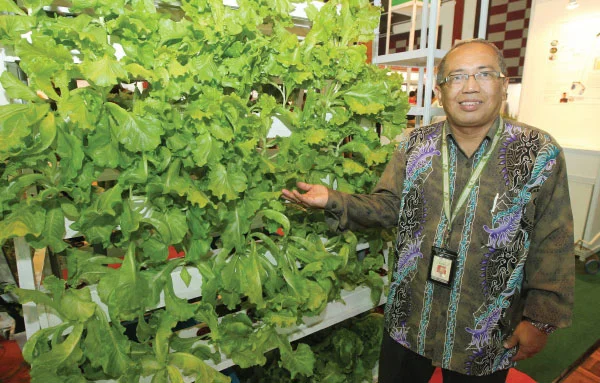Dispelling Myths About Agricultural Studies
November 11, 2017
EasyUni Staff
Brought to you by Universiti Putra Malaysia (UPM)

Agriculture is more than the cultivation of plants. Unknown to many, it offers a wide range of career options to its graduates. Postgraduate studies in agriculture cover various areas of specialisation such as Agribusiness, Agricultural Economics, Agriculture Technology, Animal Behaviour and Welfare, Animal Production, Animal Science, Aquaculture, Fisheries Science, Genetics and Breeding, Horticulture, Land Resource Management, Plant Pathology, Plant Science and Soil Science.
Postgraduate studies in agriculture help develop the industry. Research options are not limited to crop sciences and livestock production—but are also extended to soil science, pest control, environmental, land and water issues, agricultural economics, and agricultural business—all of which lead to further expansion and growth of the field.
Continuous Growth of Agriculture through Postgraduate Studies

Through research projects, students try to find solutions to fundamental issues in agriculture such as genetics, plant breeding, and biotechnology. Their focus is solving issues that have great impact on agricultural production. Their research projects aid to enhance knowledge, as well as to assist developments in crops and livestock study in the agricultural sector.
In 2013, a research team from Universiti Putra Malaysia introduced a new chicken breed called Akar Putra. The breed is bigger and takes shorter time to mature compared to the local Ayam Kampung breed. Because of its fast growth process, it shows huge potential for commercial use and has great impact on the local and international market. Indeed, the cornerstone of postgraduate research in agriculture is to resolve issues concerned with agricultural economics and business through the improvement of crops and livestock.
In some cases, Ph.D. students work on policy matters wherein they collaborate with government bodies or private entities. An example of this is the Malaysian Agricultural Sector Modeling (MAgPA) which is a project that addresses the forecasting and capacity building of the agriculture sector by use of econometrics.
While it is common to imagine agriculture students sweltering on a farm, in truth, agriculture postgraduate students, especially those pursuing their Ph.Ds, spend most of their time in the laboratory or in the library working on their research projects.
According to Prof. Dr. Abdul Shukor Juraimi, Dean of the Faculty of Agriculture in Universiti Putra Malaysia (UPM), those who would like to pursue agriculture at Ph.D. level should ideally have had formal training in the area such as through at Bachelor's degree programme in agriculture. However, those who have already acquired a fundamental understanding of agriculture and possess the necessary skills without actually majoring in agriculture at Bachelor's level may also be considered.
Known for their diligence, discipline, and critical thinking, Ph.D. students specialising in Agriculture are passionate about, and dedicated to their field of expertise. It is therefore no wonder that the industry continuously shows exponential growth.
Malaysia Looking Forward to a Sustainable Agriculture

Aside from being a tropical country, Malaysia also has an exceptional history in agriculture. Today, agriculture remains one of the nation’s most important economic sectors, contributing 9.2% to the national GDP of the country, as recorded by the Malaysian Statistics Department last 2014. In addition, agriculture also provides employment for 16% of the population. Under the British rule, large-scale plantations were established which have since then, been producing new commercial crops such as rubber, cocoa and palm oil — products which have persistently dominated the export market until now.
Meanwhile, the local market provides sufficient opportunity for growth. Since food security is very important to the country, consumers demand more supply from the local producers. However, the growing population, climate change, and limited land and water resources affect the ability of agriculture to meet the escalating demand.
This problem is addressed in different areas of research such as improvement in crop or livestock yield, fertilizers and fertilizer uptake, soil and environmental control, strategy and policy influences on food security, modern farming and urban farming technology. In-depth studies like these provide a better understanding of how crucial food security issues are, and therefore, require further research as the country hopes to be self-sufficient in the future.
Postgraduates the Future of Malaysian Agriculture

Postgraduate students continuously provide research which help to find solutions to problems and issues in agriculture. Through these developmental studies, Malaysian agriculture is well on its way to meeting the key challenge that every country faces: the global demand for food.
After doing intensive research in their postgraduate programmes, students are anticipated to have successful careers as they become equipped with the fundamental knowledge and skills in their fields of expertise.
As the industry expands, agriculture offers a wide range of career opportunities to holders of postgraduate degrees in the field. Most PhDs in agriculture join the academia and continue to carry out research while teaching classes in their areas of specialisation. Some join research agencies and institutes, and others serve as policy-makers with the Ministry of Agriculture. Since the field offers such varied job opportunities, a postgraduate student can choose to work in production, economics, marketing, agribusiness, technology, or sales, among others.
If you would like to pursue a postgraduate degree in Agriculture, get in touch with the School of Graduate Studies of Universiti Putra Malaysia (UPM).
First established as the School of Agriculture in 1931, UPM has subsequently transformed into a multidisciplinary institute of higher learning recognised by the Malaysian government as a Research University. The Faculty of Agriculture is currently ranked 45th in Best Global Universities for Agricultural Sciences of US News & World Report College and University Ranking, and in the top 100 universities worldwide for Agriculture and Forestry Science in the QS World University Ranking.
Visit www.upm.edu.my or www.sgs.upm.edu.my for more information, or email to [email protected] to know more about UPM’s postgraduate programmes.
Kickstart your education in Malaysia
We'll help you find and apply for your dream university
You might be interested in...
- EdUHK Wins Grand Prize at iCAN 2024 Achieves the Best Performance among Hong Kong Universities
- Sunway University Ranked Malaysia's No. 1 Private University in 2025
- A Sunway University Student's Journey from Cerebral Palsy to Graduation
- APU Dominates the 2024 Private Education Excellence Awards with Dual Wins
- The Young & the Wired: How Youth are Redefining the Digital Era?
- Promoting Inclusivity at Malaysian Universities: Tips for Malaysian and International Students
- Taking IELTS test in Malaysia: Tips, Tricks, and Key Info
- Sunway University Tops Times Higher (THE) Rankings in Malaysia
- Discovering Academic Opportunities and Pathways at APU after SPM and IGCSE
- Asia Pacific University's (APU) Innovative Initiatives Prepare Students for Industry 4.0
 +60142521561
+60142521561





